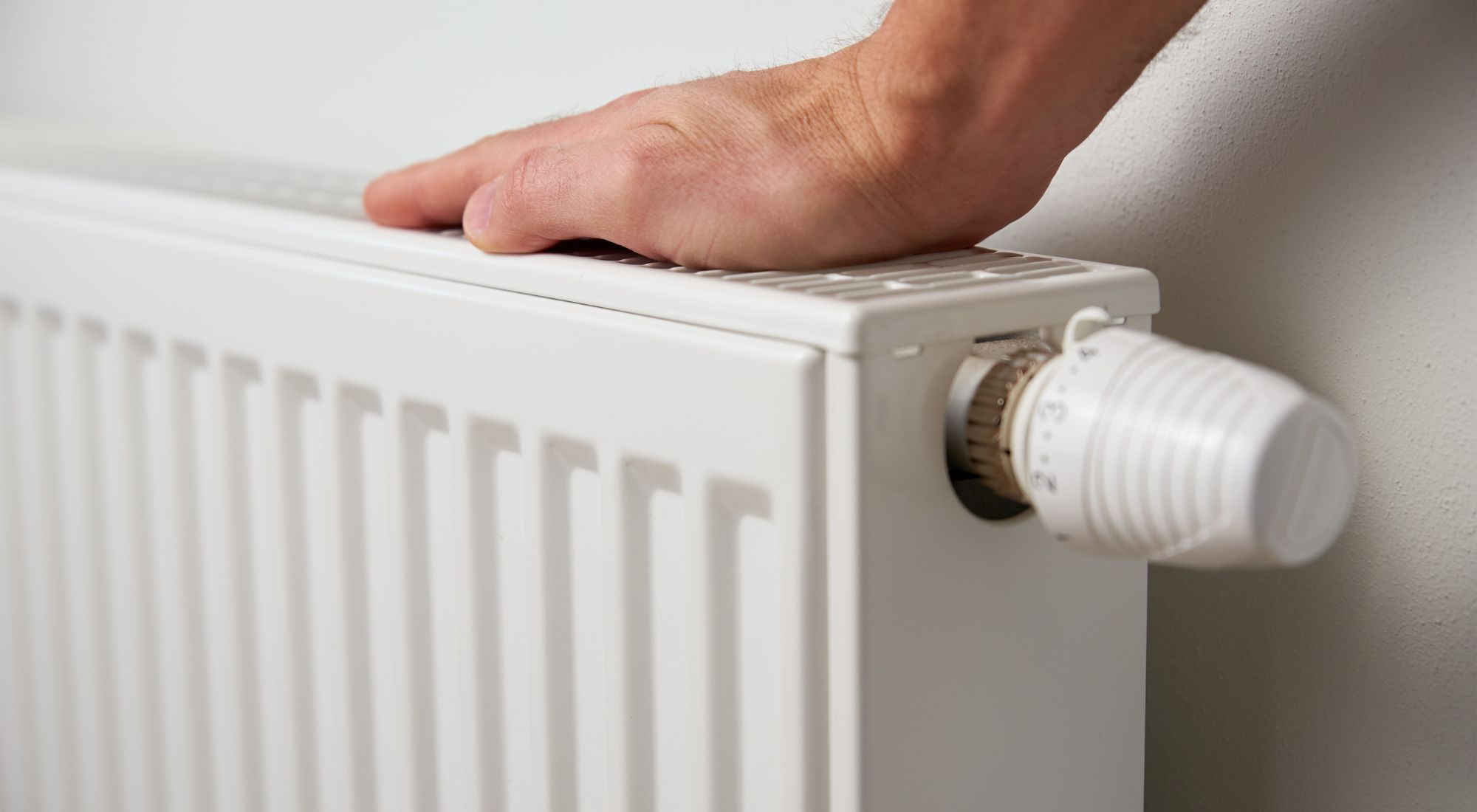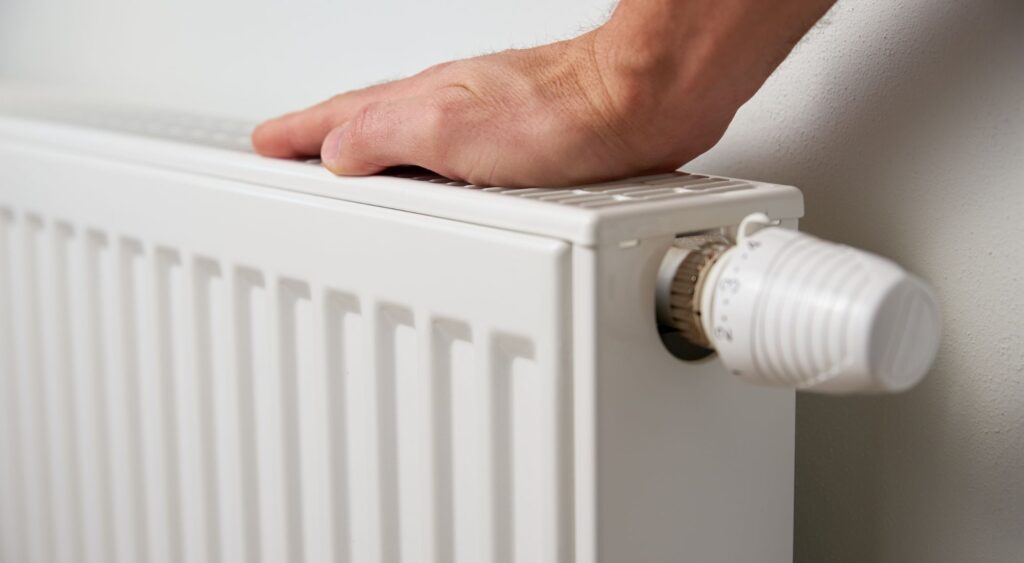
You have noticed the signs of trouble — uneven temperatures, breakdowns, rising heating costs, and old age — and it’s time for a new heating system.
In this economy, you can’t afford to burn through cash to keep your home warm. As you shop around, you’ll have to decide what you want in a heating system, such as the type of energy you’d like to use: gas or electric.
Understanding the differences between your options will help you make a confident, educated purchasing decision that aligns with your budget and needs. Keep reading to find out whether gas or electricity is cheaper and which heating and cooling decisions are better for you, your home, and your wallet.
Table of Contents
- Is Gas or Electric Cheaper?
- A Cost Analysis of Gas vs. Electric
- Additional HVAC FAQs
- Choose the HVAC Company You Deserve: AAA Heating and Cooling Cares About Comfort and Cost Efficiency
Is Gas or Electric Cheaper?
In general, electric furnaces have lower upfront costs than their gas counterparts. However, gas furnaces are usually less expensive to operate because the cost of gas tends to be less expensive than the cost of electricity. This is because gas is still the largest energy generator for most of the United States.
It’s important to keep in mind that your home will need a natural gas connection if you purchase a gas-powered heating system. If your home doesn’t use natural gas, you’ll need to hire a contractor to install a gas line and obtain permits, which adds to the initial investment.
Gas furnaces are more expensive to install than electric heating systems because venting requirements complicate the process. They also require more annual maintenance because they use combustible fuel.
To decide which would be better for your home, you’ll need to compare electricity and gas prices in your area.
Converting kWhs to BTUs
In most cases, you’ll need to convert BTU to kWh, such as determining how many kWh a 10,000 BTU air conditioning unit uses per hour. BTU stands for British Thermal Unit, and kWh stands for kilowatt hour. BTU measures the amount of heat or cooling energy required to raise or lower 1 pound of water by one degree.
On the other hand, kWh measures electrical energy, indicating how much electricity is needed to power a 1,000 W (1 kW) device for one hour. One BTU is equivalent to 0.000293 kWh, which means 3,412 BTU equals 1 kWh. To convert BTU to kWh, simply multiply the BTUs by 0.000293.
A Cost Analysis of Gas vs. Electric
The cost of heating with electricity versus natural gas can also fluctuate based on various factors, including:
- Local energy prices
- Efficiency of the heating system
- Overall energy consumption
- Economic trends
Are you curious about how to get the most out of your heating and cooling equipment? Contact the professionals who know HVAC systems like the back of their hands!
For over 60 years, AAA Heating and Cooling has kept Portland comfortable with expert care and precision. We can help you choose an HVAC system that fits your budget or improves the efficiency of your current system. Contact us today to request an appointment.
How Much Does Electric Heat Cost Per Month?
While it may still be cheaper, the cost of natural gas increased by around 28% during the winter of 2022-2023. Higher natural gas prices and increased consumption drove this increase. Despite this rise, the cost of heating with natural gas remained lower than that of electric heating. The cost of natural gas tends to fluctuate more than the cost of electricity, as various factors, including your location, the year, and the month, influence it.
Although natural gas has recently increased in price, it is still the most affordable heating option. The exact cost will depend on where you live, but using natural gas to heat your home can save you thousands compared to electric heat. The only drawback is that gas heating is less efficient than electric. A gas furnace typically operates at 70% to 90% energy efficiency.
How Much Does Electric Cost Per Month?
Homeowners in the United States typically spend around $1,063 annually on electric heating. However, this amount can vary depending on your location. For instance, your electric heating costs could be under $300 if you live in a warmer climate. They could rise to thousands of dollars in colder climates or larger homes with electric heating systems.
Most homeowners with electric heat have an electric furnace, though other options exist, such as ductless mini splits or heat pumps. Electric systems are more efficient than combustion heating, using 100% of the electricity to generate heat, while combustion systems, such as heating oil, are only about 90% efficient.
Additional HVAC FAQs
How Can You Make Your HVAC System More Efficient and Cost-Effective?
Increasing the efficiency of your system will allow it to heat your home at optimal efficiency, guaranteeing you comfort and a low heating bill. You can ensure your electric or gas heating system is running at peak efficiency by:
- Regularly changing your air filters
- Tuning up your HVAC equipment yearly
- Installing a smart thermostat
- Sealing your heating and cooling ducts
- Considering installing ENERGY STAR-certified heating and cooling equipment
- Requesting the help of AAA Heating and Cooling for all of your HVAC needs
Regular HVAC maintenance is necessary for cost savings, superb comfort, and a well-running HVAC system. However, your HVAC maintenance practices may only be as good as those of the contractors you rely on.
AAA Heating and Cooling is the best in the business when it comes to helping Portland businesses and homeowners get the most out of their HVAC systems. Unlike our competitors, we do not dawdle with repairs, we won’t charge you an arm and a leg, and we get the job done right the first time.
Contact AAA Heating and Cooling today to start saving money on your heating and cooling bills.
Is Gas or Electric Heat More Efficient?
During the winter season of 2022- 2023, the cost of heating homes increased by about 10%. Despite this rise, natural gas remains cheaper than electricity. While electricity is a more stable energy source, natural gas continues to be the leading energy generator in the United States, contributing to the higher electricity cost. Homes using oil or electric furnaces typically face higher energy bills than those with cold-climate heat pumps.
While clean, electric heating is not very energy-efficient as it requires a lot of energy to heat a home. In contrast, natural gas heating can contribute to air pollution. However, electricity isn’t always more expensive than natural gas; in certain regions, especially warmer climates, electricity can be the more affordable option.
Furnaces use an Annual Fuel Utilization Efficiency (AFUE) score to indicate their energy efficiency. The score tells you how much gas or electricity the heating consumes to produce heat. Modern high-efficiency furnaces can have AFUE scores of 96 percent or higher (the system uses 96 percent of the energy consumed to create heat; only 4 percent of the energy is wasted). Keep in mind that AFUE scores don’t calculate heating losses from ductwork, pipes, and chimneys. When ducts are in the attic, heating losses can reach up to 35 percent.
When investigating a heating system’s efficiency, bear in mind that electric furnaces do not instantly heat a home. Instead, they must power up a heating element before distributing warm air, so it takes longer for a room to feel warm. Because electric furnaces don’t use flues through which heat can escape, they waste less energy than gas furnaces. However, gas furnaces heat a home faster because they produce the maximum heat desired as soon as the burners run. As a result, the system wastes less energy in generating heat.
Is Heat or Electric Better for the Environment?
A heating system’s environmental friendliness depends on the resources it uses to create energy. At first glance, it might seem as if a gas furnace’s efficiency makes it better for the environment. However, if a home is powered with hydro, wind, or solar energy — clean, renewable forms of energy — an electric system might have a smaller carbon footprint.
The U.S. Department of Energy states that any high-efficiency furnace with an 85 percent or higher AFUE score is more environmentally friendly than older models. Upgrading a gas furnace with an AFUE of 56 percent to one with an AFUE of 90 percent in an average home can save up to 1.5 tons of carbon dioxide emissions annually and up to 38 percent on heating bills.
When considering the environment, remember your home environment. A well-maintained gas furnace is safe for use inside a home. However, failing to hire a licensed professional to inspect and maintain the gas appliance every year may result in gas leaks, which lower indoor air quality and can cause harmful carbon dioxide poisoning.
If you’re looking for an expert Portland HVAC company that understands the value of comfort, eco-consciousness, and affordable heating solutions, look for more than AAA Heating and Cooling. Over sixty years in the heating and cooling business have taught us a thing or two about safe and cost-effective heating; we’d be happy to help you find the best furnace for your needs.
Choose the HVAC Company You Deserve: AAA Heating and Cooling Cares About Comfort and Cost Efficiency
When you choose AAA Heating and Cooling for your home comfort needs, you can trust that you’ll receive the best equipment that lowers your energy costs and brings peace of mind. Safety is the top priority for our specialists, who make it their business to ensure the only thing you have to worry about when heating your home is finding the perfect temperature on the thermostat.
As a full-service contractor, our personnel include installers, metal shop workers, foremen, and office staff who tend to the details of your heating and cooling needs. When you’re ready to shop for a new furnace, an expert service advisor trained in the design and application of home comfort systems will learn about your home heating needs and energy-saving goals to match you with state-of-the-art solutions.
If you’re unsure if gas heat or electric heat is better for your home, contact AAA Heating and Cooling for personalized expert advice. AAA has served thousands in the Portland metro area since 1961 and is committed to making your home feel comfortable with value-added solutions. Contact us today and see why we’re the leading Portland HVAC company.



